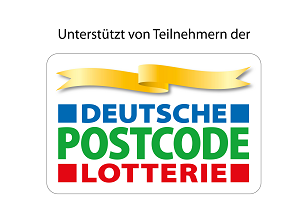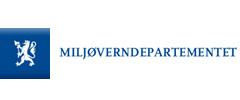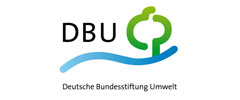Asbestos in Kazakhstan - project results
Kazakhstan is one of the biggest producers and consumers of asbestos, but the public is hardly informed about the dangers surrounding them in daily life
20.05.2011 |Alexandra Caterbow

Testing of asbestos containing materials from Kazakhstan
This topic is very relevant to e.g. vulnerable groups, highly exposed groups like workers, inhabitants of mining areas and waste areas because they suffer from exposure and even do not know that places where they live and work or go to school are highly dangerous for their health.
To raise awareness, provide information, educate trainers, building networks, strengthen citizens capacities and develop solution strategies to present state authorities will help to reduce the use of asbestos and POPs and clean up contaminated waste sites.
WECF in cooperation with EcoCenter, Greenwomen and the University of Kassel executed the following activities as part of the the Asbestos and POPs project:
- High level conference on asbestos and POPs in Astana 2009
- Trainings on asbestos for multipliers in 7 towns in Kazakhstan
- National workshop to develop national policy recommendations on asbestos
- Publications: inventory on asbestos in Kazakhstan, Conference Resolution, National policy recommendations on asbestos, leaflet for consumers, training manual
- Participation at COP4 of the Stockholm Convention
The trainings were conducted in 7 towns of Kazakhstan: June 16, 2009 – Kostanay, June 18, 2009 – Karaganda, June 19, 2009 – Pavlodar, June 20, 2009 – Ust-Kamenogorsk, September 8, 2009 – Atyrau, September 9, 2009 – Shymkent, September 10, 2009 – Almaty. More than 180 people, NGO representatives, IHE (Institute of higher Education) and school teachers, Ecology and Children protection Departments, local bodies, Department of the state architectural – town-planning control, enterprises, concerned with asbestos production or use, medical and educational establishments, Mass Media took part in the trainings.

The training program provided information about chrysotile asbestos, its mining and treatment, the use in building, machinery construction and utilization in the countries of EU. Great interest in this subject was shown from the direction of NGO, educational establishments, local representatives of the state ecological and medical organizations. The pro-asbestos lobby was very active at almost all the trainings, trying to discredit the trainer and trying to persuade all the participants that there was no health risk from Kazakh chrysotile asbestos. In some cases, the pro-asbestos participants tried to create turmoil. As the trainer is a well-known expert on asbestos, he could present counter-arguments in a professional manner.
The civil society representatives got information and knowledge about asbestos and safe management at the seminars. This information was not accessible in Kazakhstan through official establishments till the present time.

The Results
The project conference and seminars have shown that there is a shortage of accessible information for the general public on asbestos and asbestos-containing materials in Kazakhstan. Never before the health hazards of chrysotile asbestos were subject of open public dialogue in the country. There is no medical research on the influence of chrysotile asbestos on the health of workers and the population. According to the participants of seminars and the high-level conference the population does not at all know about the harm of asbestos use and extraction.
The project activities aimed to improve the public information about health impacts from POPs and asbestos in homes, workplaces and public buildings.
The project final beneficiaries (population in Kazakzstan, in particular in the 7 cities) became aware for the first time about the health hazards of asbestos, and shared information about preventive measures for the populations from both asbestos and asbestos containing materials as well as POPs, through the media results and the 7 public training sessions.
Numerous policy and economic decision makers on national and local level were informed about the hazards of asbestos, asbestos waste, POPs and POPs waste via the high-level conference, seven local workshops and the national workshop that resulted in policy recommendations towards a national strategy on these issues. As a result, the target groups - multipliers such as decision makers, CSOs, local authorities, community based organisations and the media,- improved their knowledge on how to strengthen the national regulations, and the benefits of strengthening international binding policy frameworks such as the Stockholm Convention and Rotterdam Convention. WECF and Eco Forum also helped to obtain a target on elimination of asbestos related diseases in the Parma Ministerial Declaration, which was signed by all ministers of health and environment of the Central Asian, Caucasus and European region (UNECE). This has lead to WHO-Euro prioritizing asbestos as one of the key focus areas for all EECCA countries, as off 2011, WHO will support Kazakhstan in developing a national plan for elimination of asbestos related diseases. Thus the project has lead to stronger public participation in monitoring of existing regulations and in development of stronger legislation for the protection of human health and the environment in Kazakhstan.In the longer term, this should result in better protection of public health from chrysotile asbestos and POPs.
Related News
Asbestos in Kazakhstan - project results
Kazakhstan is one of the biggest producers and consumers of asbestos, but the public is hardly informed about the dangers surrounding them in daily life
20.05.2011 | Alexandra Caterbow
WECF co-organised International Expert Conference and recommends better control of hazardous substances in Russia
For the first time in Russia a public open debate was held this week to discuss the accession of the Rotterdam Convention by the Russian Federation and the issue of chrysotile asbestos
18.10.2010 | WECF news
WECF at Asia and Pacific Region Ministerial Conference in Astana, 2010 - Recommendations and Opportunities for Green Growth
Lessons on environmental challenges on uranium and asbestos mining in Kazakhstan
07.10.2010 | WECF News
CSD 18: “Asbestos – who pays the bill? WECF Lunch Event at UN Commission for Sustainable Development
Testimonies and Dialogue on Policy Recommendations” In the framework of the 18th session of the UN Commission for Sustainable Development (CSD) in New York, May 6, 2010
11.06.2010 | WECF Report
CSD 18: WECF member speaks at high level UN conference on need for global uranium mining monitoring and clean-up
WECF member Kaisha Atakhanova speaks on the need for stronger control of uranium mining
30.05.2010







































